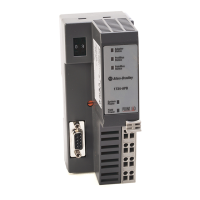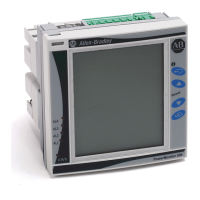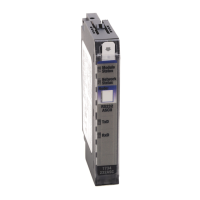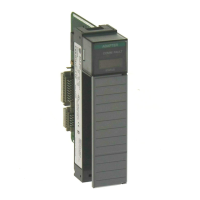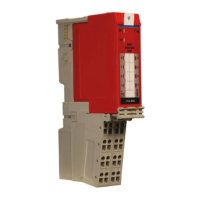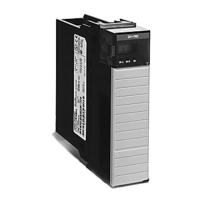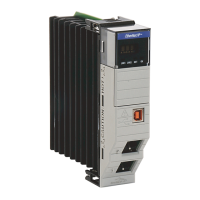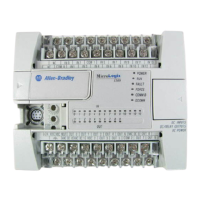Publication 1757-RM810A-EN-P - May 2002
Functional Blocks 3-45
PULSECOUNT
Description The PULSECOUNT block generates pulses according to its pulse count control algorithm. The pulsed outputs are
usually fed to Digital Output Channel blocks.
Dual Pulse Train: A control algorithm turns on either a “raise” channel or a “lower” channel after every execution of
this algorithm. The output is modulated with a 50% duty-cycle pulse train. The on-duration (or pulse length) is
configured for the channel and is indicted with a tuning parameter. The calculated on-duration will be in 10 msec
increments.
Single Pulse Train: A single output channel is used to indicate the direction (raise or lower) of the actuator. A second
output channel is used to deliver a 50% duty cycle pulse train. The on-duration (or pulse length) is configured for the
channel and is indicted with a tuning parameter. The calculated on-duration will be in 10 msec increments.
Function • Typically used in conjunction with a POSPROP block to step a valve open or closed, raise or lower a rotary device,
or move the plates of a pulp mill refiner together or apart.
• The POSPROP block feeds the PULSETIME input parameter to the PULSECOUNT block. This parameter is an
internal structure that contains the pulse width specification (in seconds). It also contains a Serial Number that
changes every time there is a new pulse width value. The PULSECOUNT block checks for a change in the Serial
Number before reacting to the pulse width specification.
Inputs • Requires a pulse time (PULSETIME) input from another block. A POSPROP block usually supplies this.
• The POPERIOD input is user configurable in seconds.
• The PDELAYDIRCHG input is user configurable in seconds.
• The optional LOCALMAN input should come from another block in a logic strategy where an ON condition means
that the CEE is not controlling the output of the device.
Outputs The PULSECOUNT block has the following initializable outputs:
• PORAISE = Pulse output for Raise pulses. These pulses are generated if the pulse width specified by the
PULSETIME input is positive.
• POLOWER = Pulse output for Lower pulses. These pulses are generated if the pulse width specified by the
PULSETIME input is negative.
• PO = Pulse output for both Raise and Lower pulses. These pulses are generated as a logical OR between the
PORAISE and POLOWER pulses.
• PODIR = Direction for PO. This output is OFF for a Lower pulse and is ON for a Raise pulse.
Parameters ALMDB
ALMDBU
ALMTM
INITMAN
INITREQ
LOCALMAN
ORDERINCM
PDELAYDIRCHG
PO
PODIR
POLOWER
POPERIOD
PORAISE
PULSETIME
Spare Allen-Bradley Parts

